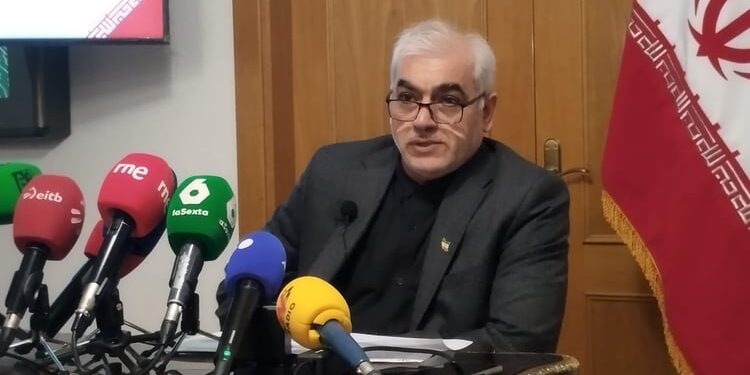The Diplomat
“If Israel repeats its mistakes again, Iran’s response will be quicker and stronger”, Iranian Ambassador to Spain Reza Zabib said yesterday during a press conference in which he stressed, in reference to the United States, that “now is the time for the allies of the Zionist regime to advise restraint for the sake of peace and stability in the region”.
The Iranian diplomat blamed Washington for “blocking all diplomatic efforts to stop this aggressive tendency of the Zionist regime and not fulfilling their promise, when they said they would maintain restraint and that there would be a ceasefire in Gaza”. Zabib appealed to Article 51 of the UN Charter to point out that “we had no choice but to react”.
The ambassador furthered his argument by pointing out that the attack launched last April against Israel “was just an indication, but we said explicitly then that the next response would be without warning and this is what has happened now”. He denied that his government had informed the US in advance of Tuesday’s attack, noting that only “hours after the operation began we officially informed the UN Security Council and the president of the General Assembly”.
Reza Zabib said his government was ending the operation against Israel “unless there could be further aggression against us”. In that case, he warned that ‘Iran is fully prepared to take future defensive measures to protect its legitimate interests and defend its territorial integrity and sovereignty against any act of military aggression and illegal use of force’. “If the Israeli regime again commits such an intentionally unjust act, Iran’s response will be swift, decisive and more forceful than before. Iran will not hesitate”, he concluded.
Zabib assured that Iran only attacked military targets and that “90% of the missiles hit their targets”. To reports that the Israeli air defence system intercepted most of these missiles, he replied: “Good for them. We are satisfied”.
The ambassador said that “everything now depends on the Zionist regime and its allies, mainly the US, which has always called on others to exercise maximum restraint”. This restraint, he said, has been maintained “not by the US but by friendly European countries” despite the assassinations of Hamas leader Ismail Haniya, Hezbollah leader Hasan Nasrala and Iranian General Abbas Nilforushan.
Israeli Prime Minister Benjamin Netanyahu, for his part, declared that Iran’s attack will have consequences: “Iran has made a grave mistake and will pay for it”.
Tuesday’s missile strike is the second Iranian military operation against Israel since the start of the Gaza offensive. The first occurred in April, when Tehran launched more than 300 drones and missiles following the Israeli bombing of Iran’s consulate in Syria that killed several members of Iran’s Revolutionary Guard.







